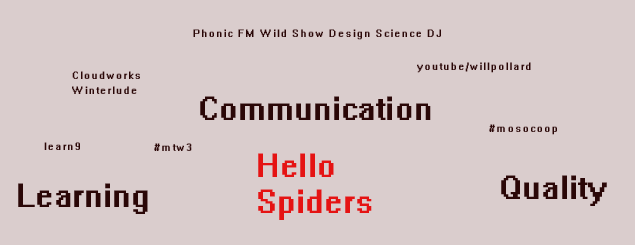misc notes #1
Now back in Exeter. Reading Guardian for Saturday and Observer for today. These are notes for a future post I think. Maybe a rewrite of a pre4vious post will be the format for many future ones. Several issues are much the same. There may be events but even that is open for discussion. Reports on shopping show continued interest in tablets etc.
Andrew Martin on resolution to get more into gadgets for 2014. On balance he is moving forward, but there is much that seems more of the same. Could be a representation of journalist opinion
Of course, the techies will always be one step ahead. At the start of my journalistic career in the late 1980s, I won a prize for an essay about how newspaper offices were tyrannised by the patronising blokes of the computer department. ("It's ctrl-alt-9, like I told you before.") I believed that the means of producing any given article was becoming more important than the article itself, and I don't think I was wrong about that.
My technophobia was underscored by writing historical novels, invoking a world without McDonald's, manmade fibres, plastic or fluorescent lighting. This work reflected my view of postwar Britain as a country beset by a post-imperial midlife-crisis, a glib neophilia; hence the destruction of our Victorian city centres and our industrial capacity.
But I am losing my nerve. When I meet people who have a mobile phone as basic as mine, they'll indulge in a bit of mock-Luddite banter ("Got this in a pound shop … No extra features but the date and time, and they don't work"). But it usually turns out they're expert texters, purists who don't like predictive texting, just as good drivers prefer a manual car to an automatic. They have one foot in modernity anyway. I'll meet a man who smokes a pipe … but it turns out he designs websites for a living; or a woman who plays the lute … but she blogs about it.
Taking a large chunk there but useful as probably what most of the people writing for the Guardian think.
Steven Poole trying to go back in time I think with review of Blockbusters-
In 2006, the then editor of Wired magazine, Chris Anderson, published The Long Tail: Why the Future of Business is Selling Less of More. Thanks to new digital distribution methods, it claimed, the blockbuster was on the way out, and most profits would henceforth come from niche products. It didn't work out that way, as Elberse now demonstrates. "The importance of individual bestsellers is not diminishing over time," she shows. "Instead, it is growing." (A remarkable statistic: 74% of all individual MP3s purchased online in 2011 sold fewer than 10 copies each, while 0.00001% of songs made up 15% of total revenues.) Why The Long Tail was nonetheless a blockbuster book is a mystery Elberse does not investigate.
I find almost nothing in the Review about the state of publishing, how digital effects the structures etc. Do they think a few bestsellers from major publishers will do the trick? whatever they think it is.
There are even more adverts for Masterclasses, sessions where Guardian readers can pay to learn from a star source. Presumably the blockbuster model fits this well, there are only a few people who have the secret. I think there could be a related conversation on how actual and lapsed Guardian readers can learn from each other and free sources online.
John Naughton very worried about Google.
What makes the Google boys so distinctive is not the fact that they did update their assumptions about what machines can and cannot do (because many people in the field were aware of what was becoming possible) but that they possessed the limitless resources needed to explore and harness those new possibilities. Hence the self-driving car, MOOCs, the Google books project, the free gigabit connectivity project, the X labs and so on…
Why are MOOCs on this list? Much comment seems to assume that MOOCs are only commercial, not from proper academic sources. I think that in 2014 other models may be on offer. The word MOOC may well change to something else. There will be some claims that they don't work but I can't see how long that could continue. The people who don't like them will have to propose an alternative. I don't see why they cannot learn from what Google and other companies are doing - Apple and Adobe for example. They know about learning in some form. But they are not the only model possible.
Last year Guardian Education had only negative comment about MOOCs and very little news.
Trying to keep an open mind for next year. Guardian may change unless their plan is to rely on King's Cross as a campus with blockbuster instruction.
